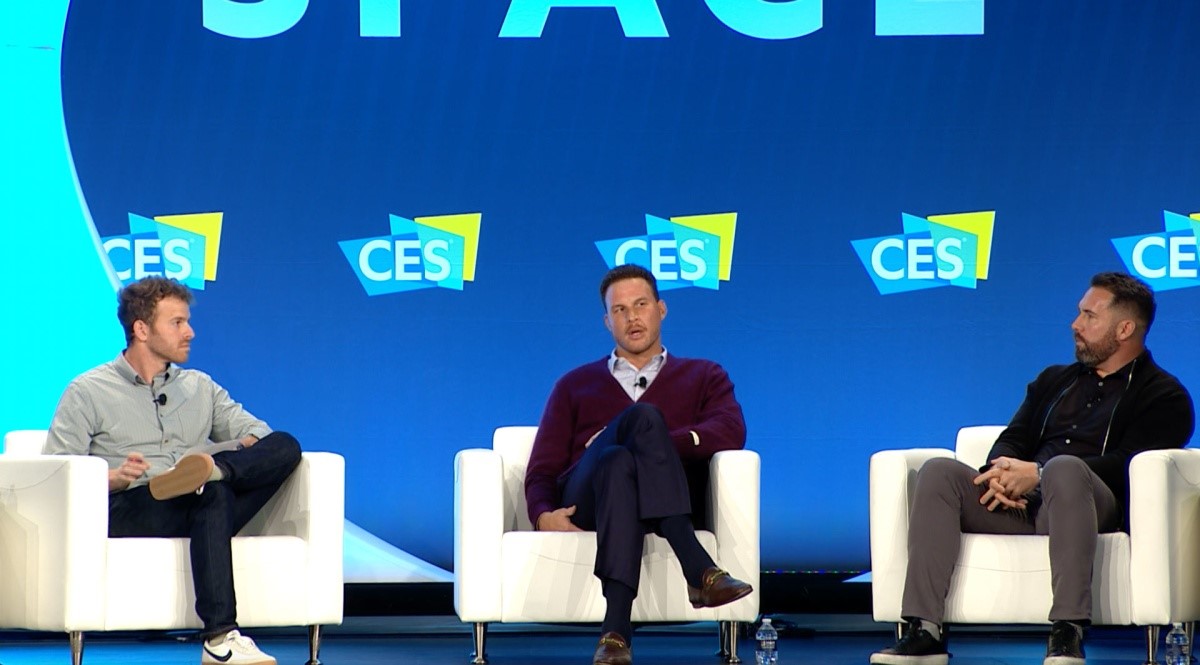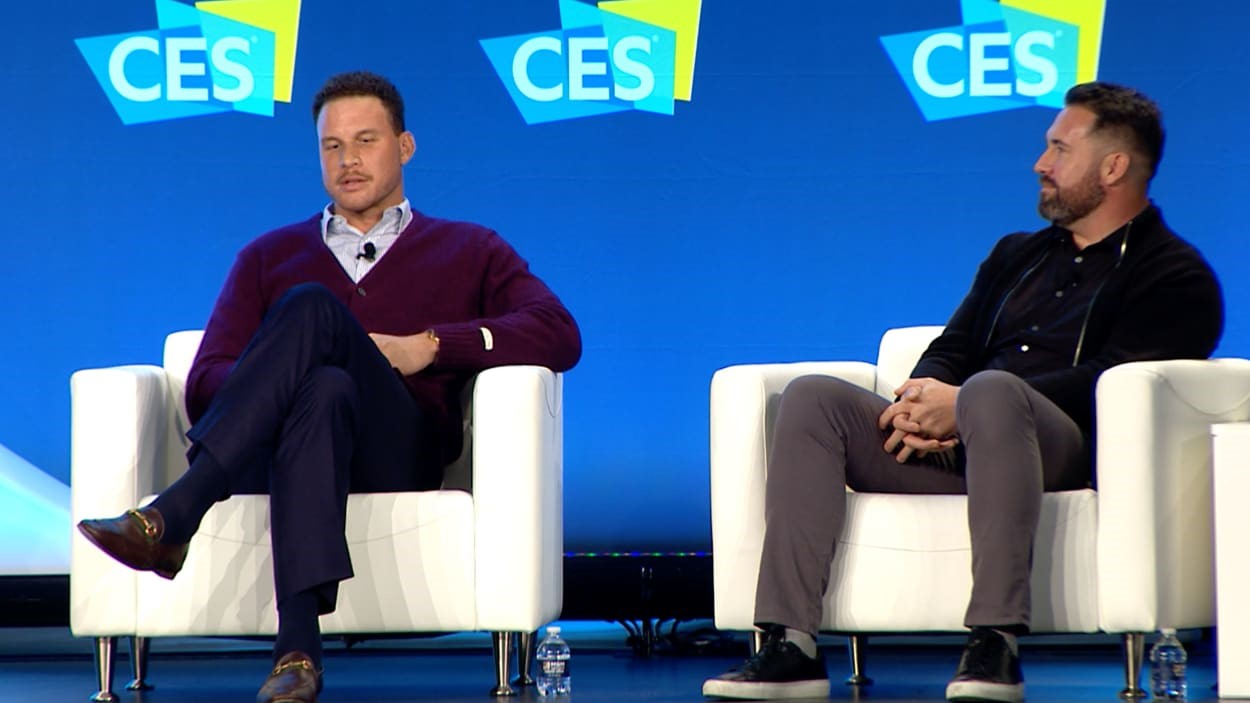How Blake Griffin and Ryan Kalil successfully made the leap from sports to Hollywood
By Max Ufberg
The way Blake Griffin sees it, he and Ryan Kalil have a simple mission when it comes to Mortal Media, the production house they founded in 2016: to make stuff they’d actually want to watch. “With streaming and the landscape of entertainment today, there’s so many mandates, there’s so many algorithms,” Griffin said during a panel with Fast Company at CES this week. “And we always go back to that first model that we once had: Would we want to watch this?”
In Mortal Media’s case, that mandate has translated into a diverse slate of projects. Last year alone, the company released on Hulu a reboot of White Men Can’t Jump that featured Jack Harlow in the lead role; debuted the Billy Crudup-starring sci-fi comedy, Hello Tomorrow!, on Apple TV+; and inked ??a multiyear first-look deal with Sony Pictures Entertainment for film and TV. There’s also a remake of The Rocketeer in the works for Disney, a single-camera comedy series called Get Buckets in development for Fox, and an untitled action comedy (produced together with Kevin Hart’s Hartbeat) for Netflix. On top of that, Mortal led an investment round last summer for Swaybox Studios, whose proprietary animation technology combines elements of stop-motion animation, CGI, and live action.

While Griffin is a six-time NBA All-Star, and Kalil a five-time NFL Pro Bowler, a quick survey of Mortal’s portfolio shows that the two won’t be pigeonholed into producing sports content. (Sure, White Men Can’t Jump is about two basketball players, but the film is more about their relationship than it is a box score.) That Mortal’s catalog goes so against type is wholly intentional: In the beginning, “agents, studios, producers pitched us everything sports-related under the sun,” Kalil said. “We were fighting the stigma of being athletes and being new on the scene. But we kind of stuck to our guns, and we stayed true to the things that we really loved. And now we have a whole slew of projects that we’re working on, and we really feel like we’re going to have a body of work that allows us to sort of play in a bunch of different sandboxes.”
It helps that both men possess an obvious passion for the industry. Griffin credits his fondness for comedy to a childhood filled with Eddie Murphy, Richard Pryor, and Dave Chapelle. “It was sneaking out of bed and my dad letting me watch Saturday Night Live with him,” he said. That interest turned pragmatic when, years later, when Griffin was filming advertisements for the likes of Kia and Google, he became increasingly involved in the creative process. “I started sitting in and helping write,” he said.
In Kalil’s case, the love for film started with Star Wars—more specifically, the “behind-the-scenes” material that appeared on the Star Wars VHS tapes. “I remember seeing a lot of the Phil Tippett animation and just being so enamored with it,” he said.
Phil Tippett, for the record, is the stop-motion pioneer behind Robocop, Piranha, and, yes, Star Wars. The exact kind of guy, in other words, that only a film geek would name-drop.
(18)



